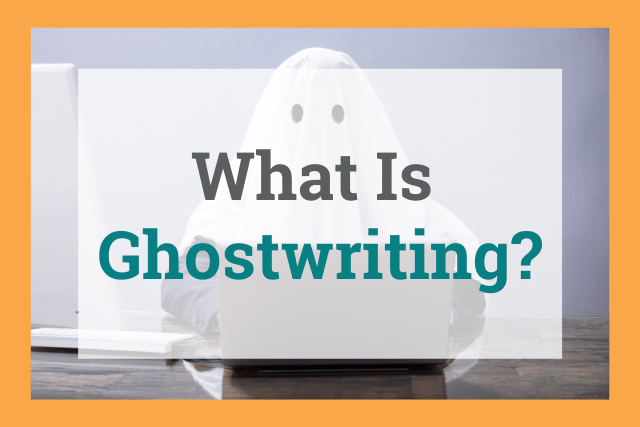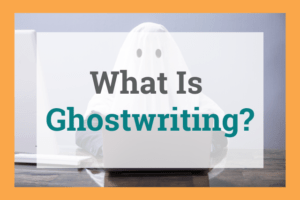In the world of literature, there exists a mysterious and often misunderstood practice known as ghostwriting. While many people may be familiar with the term, few truly understand what it entails. In this article, we will deep into the realm of ghostwriting, exploring its definition, purpose, the role of ghostwriters, and its impact on various industries. So, what is ghostwriting, and why does it play such a pivotal role in the creative and professional world?
Defining Ghostwriting
What is Ghostwriting?
Ghostwriting is a process where a skilled writer, known as a “ghostwriter,” crafts written content, such as books, articles, speeches, or social media posts, on behalf of someone else. The ghostwriter remains uncredited for their work, while the named author takes full credit and ownership.
The Element of Anonymity
One of the defining characteristics of ghostwriting is anonymity. Ghostwriters operate behind the scenes, allowing others to shine in the spotlight. This anonymity provides clients with the opportunity to have their ideas and stories told by a professional writer, ensuring the content is polished and engaging.
The Purpose of Ghostwriting
Meeting Diverse Needs
Ghostwriting serves a multitude of purposes across various industries. From celebrities and business leaders to authors and politicians, anyone seeking to convey their message or story can benefit from a skilled ghostwriter’s expertise.
Enhancing Quality
Ghostwriters are experts in their craft, capable of transforming raw ideas into eloquent prose. By doing so, they enhance the quality of the content, making it more appealing to the intended audience.
Ghostwriters at Work
Collaboration and Communication

Successful ghostwriting projects rely on effective collaboration and communication between the client and the ghostwriter. The client must convey their ideas, vision, and goals clearly, allowing the ghostwriter to bring their words to life.
Research and Adaptation
Ghostwriters often engage in extensive research to understand the client’s voice, style, and perspective. This ensures that the content aligns seamlessly with the client’s identity.
Ghostwriting in Different Industries
The Literary World
In the literary world, ghostwriters help authors struggling with time constraints or writer’s block. This allows prolific authors to maintain a consistent output of work.
Business and Marketing
In the business realm, ghostwriters play a vital role in crafting compelling speeches, articles, and marketing materials for CEOs and executives. They help businesses establish thought leadership and credibility.
Music and Entertainment
Ghostwriting extends into the music and entertainment industry, where songwriters often work behind the scenes, penning lyrics for famous artists. This enables artists to focus on performance and creativity.
The Ethical Debate
Transparency and Authenticity
The practice of ghostwriting has sparked ethical debates, primarily concerning transparency and authenticity. Critics argue that it can be misleading when individuals take credit for work they didn’t create.
The Importance of Contracts
To navigate these ethical waters, clear contracts outlining the roles, expectations, and compensation for both the ghostwriter and the client are crucial. Contracts ensure that all parties involved understand the terms of the collaboration.
Conclusion
In the world of writing, ghostwriting is a fascinating and essential practice that enables individuals to share their stories and ideas with the world. While it may remain shrouded in secrecy, it plays a significant role in literature, business, and entertainment. Ghostwriters are the unsung heroes behind many influential works, making their mark without ever stepping into the spotlight.
FAQs
1. How do I find a reliable ghostwriter for my project?
Finding a reliable ghostwriter involves research and careful consideration. You can start by seeking referrals, checking portfolios, and conducting interviews to ensure a good fit.
2. Are ghostwriters always anonymous?
While anonymity is common in ghostwriting, some clients may choose to give partial or shared credit to the ghostwriter, depending on their preferences and agreements.
3. Is ghostwriting considered unethical?
The ethics of ghostwriting can vary depending on the circumstances and the level of transparency involved. It’s essential to establish clear expectations and ethical guidelines in any ghostwriting project.
4. How much does ghostwriting typically cost?
The cost of ghostwriting varies widely based on factors like the project’s complexity, the ghostwriter’s experience, and the scope of work. It’s advisable to discuss pricing upfront with potential ghostwriters.
5. Can a ghostwriter write in my voice?
Yes, a skilled ghostwriter can capture your unique voice, tone, and style by conducting thorough research and closely collaborating with you throughout the writing process.




